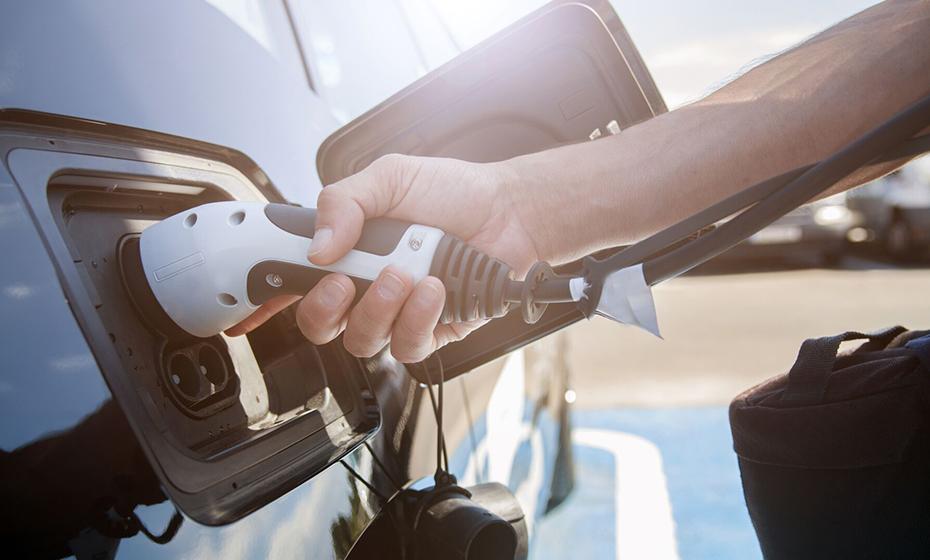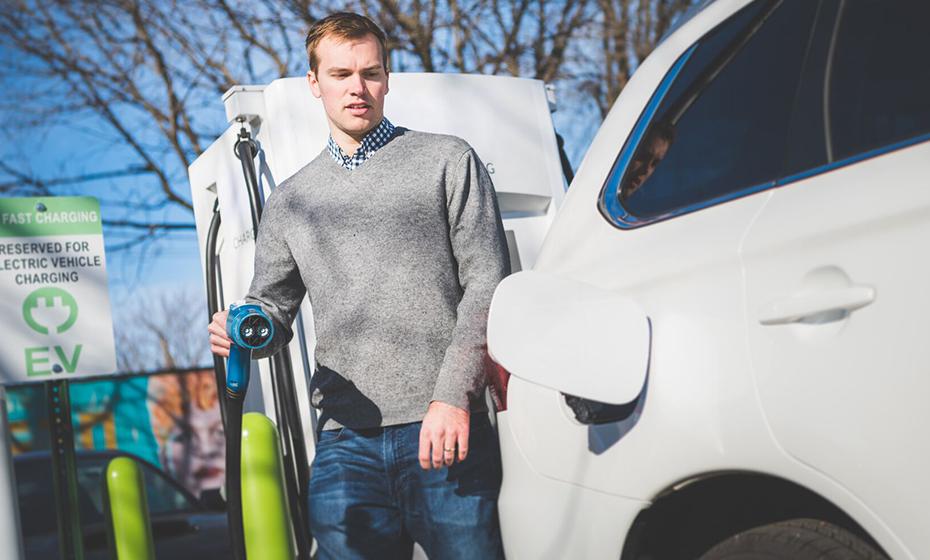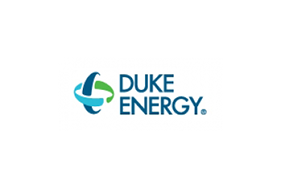How Duke Energy Manages EV Charging, Helps Customers Save
Customers are incentivized to charge their EVs during off-peak times, when the grid has more capacity
Published 03-06-24
Submitted by Duke Energy

As Duke Energy strengthens the electric grid to be more resilient and reduce outages, the company is offering money-saving programs to customers while ensuring it can handle the increase in electric vehicle (EV) adoption.
Charging EVs during off-peak hours, when fewer people are using electricity, allows the grid to function more efficiently – behaviors that can help keep costs down by reducing the need for new infrastructure.
When Kevin Davis of Indiana, a new EV owner, bought his Tesla, the company suggested he look into tax incentives and other discounts through the state or his electric utility. That’s when he learned of Duke Energy’s EV Off-Peak Credit program.
The pilot program, which launched in Indiana in 2022, helps Duke Energy customers with EVs save money on their monthly electricity bills when charge their vehicles during off-peak hours (Monday through Friday, 9 p.m. to 6 a.m., plus holidays and weekends).
Davis, founder and CEO of Indiana Charters, an Indianapolis-based charter school consulting company, takes advantage of the program since it’s easy and saves him money.
“It’s all automated,” Davis said. “I don’t even have to think about it. They even surprised me with a gift card."
In the six months since Davis switched from a gas-powered vehicle to an EV, reports indicate a savings of $1,167, including the $100 gift card credits from Duke Energy.
Through financial incentives, the company aims to shift demand on the energy grid to times when it is used less, which is important since about 2 million EVs are expected to be on the road in Duke Energy’s service territories by the end of 2030.

When is off-peak EV charging?
Monday through Friday, 9 p.m. to 6 a.m., plus holidays and weekends.
It’s why the company expanded incentives for off-peak EV charging in 2023. Through a pilot program, eligible Florida customers who have a Level 2 EV home charger can receive a $10 monthly bill credit.
In Indiana, the program provides a $50 quarterly credit for two years, totaling $400 per customer.
The goal, said Candyce Marsh, manager of program management transportation electrification at Duke Energy, is to support customers’ EV transition by offering programs that are simple and easy to take advantage of.
“The good news,” she said, “is that program enrollment has exceeded expectations.”
In 2023, the Florida program reached 2,000 enrollees, which shifted peak grid consumption equivalent to the annual use of several dozen homes.
“It demonstrates that voluntary-managed charging programs can help balance demand on the grid with little inconvenience to customers,” Marsh said. “We want people to be able to simply, ‘set it and forget it.’”
That’s the case for Davis.
“The convenience of charging is incredible,” he said. “I plug in when I get home from work and program my car to charge fully, which for me is 80%. It’s not only not an inconvenience; it’s more convenient.”

Duke Energy’s EV programs
Use the EV Savings Calculator to see how much you’ll save by switching to an EV or the EV Selector Tool to help find a vehicle that’s right for you at EVs - Duke Energy (duke-energy.com).
Programs vary by service area but may include off-peak charging, charger options and installation credits. To see programs available in your area, visit EV Complete - Duke Energy (duke-energy.com).
View original content here.

Duke Energy
Duke Energy
Duke Energy (NYSE: DUK), a Fortune 150 company headquartered in Charlotte, N.C., is one of America’s largest energy holding companies. The company’s electric utilities serve 8.4 million customers in North Carolina, South Carolina, Florida, Indiana, Ohio and Kentucky, and collectively own 54,800 megawatts of energy capacity. Its natural gas utilities serve 1.7 million customers in North Carolina, South Carolina, Tennessee, Ohio and Kentucky.
Duke Energy is executing an ambitious energy transition, keeping customer reliability and value at the forefront as it builds a smarter energy future. The company is investing in major electric grid upgrades and cleaner generation, including natural gas, nuclear, renewables and energy storage.
More information is available at duke-energy.com and the Duke Energy News Center. Follow Duke Energy on X, LinkedIn, Instagram and Facebook, and visit illumination for stories about the people and innovations powering our energy transition.
More from Duke Energy

